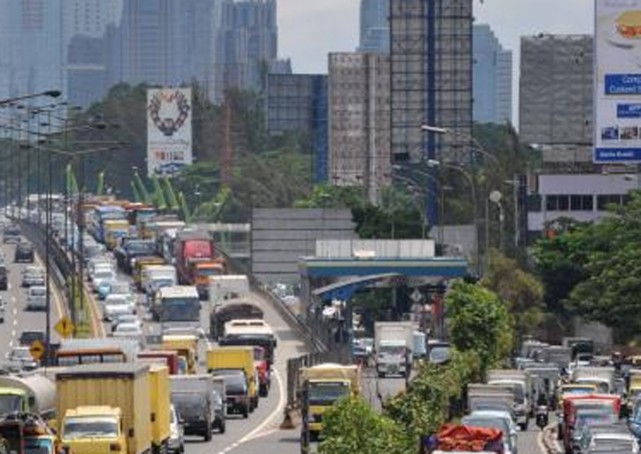The activists said the draft document on Intended Nationally Determined Contributions (INDC) lacked information on how the government hoped to achieve its new emissions-reduction target of 29 per cent, with no clear reference to funding sources, targets, baseline references or means of implementation.
The draft is open for review on the Environment and Forestry Ministry website for public input. The review closes on Sept. 20. It will be discussed at the UN conference this December, with Indonesia and other countries shifting the focus from tackling deforestation to issues of energy consumption post 2020 in the fight against climate change.
The draft states that Indonesia will provide US$55.01 billion (S$77 billion) to reduce emissions by as much as 29 per cent for the period 2015 to 2019. From 2007 to 2014, it had spent a total of about US$17.48 billion to reach its own emissions-reduction target of 26.41 per cent.
"The government cannot show us how they've come up with such figures. There is no review on the use of past funding. If this is how the draft looks like, INDC could be merely another international discourse that ends up in investment projects among various countries without serving the public interest," Diana Gultom, a researcher from debtWATCH Indonesia said during an activists' gathering on Thursday.
She added that drafts from developed countries also did not state that they would provide funding for developing countries to combat climate change.
"Indonesia should state clearly the sources of the US$55.01 billion cited in the draft. Are they domestic sources, donations or loans? If it's from foreign sources, we have to make sure that there are no conditions they require from us that will disadvantage us," she said.
Diana went on to say that instead of taking on additional unnecessary loans, the government could disburse existing idle funding to reduce emissions, such as from the reforestation budget.
"The disbursement needs approval from the regional heads or central government. They need to be aware of the red tape involved in the budget disbursement so they have to act fast and change any challenging regulations that slow down the disbursement," she said.
Mentawai Island regency in West Sumatra, for example, has a Rp 64 billion (S$6.2 million) reforestation budget that has lain idle since 2003. "The budget is wasted because it cannot be used. There are so many requirements for the disbursement," said Kortanius Sabeleake, a regional councilor in the area, as quoted by tempo.co.
Sisilia Nurmala Dewi, the spokesperson of the Association for Community and Ecology-Based Law Reform (HuMa) said the INDC should insert variables that were specific, measurable, relevant and time-bound to be able to reach a target that could be verified in the future.
This includes the listing of real programs that the government could undertake from now until 2020, which can lay the foundations for responsible long-term development to reach zero emissions.
"Developed countries could offer help if the draft showed clearly the ongoing progress of emissions reduction, how far we are from the target, and identify in which areas foreign countries could help us. If the draft is this unclear, who is going to help?" she said during the conference.
Activists also lambasted the government for the contradiction between the targets and existing policies.
"The government plans to build power plants producing 35,000 megawatts by 2019. As much as 20,000 megawatts will be produced by coal-fired plants, while only 2,000 megawatts will be generated from clean and renewable sources. How can it be possible to reduce emissions by 29 per cent?" asked Abetnego Tarigan, the chairman of the Indonesian Forum for the Environment (Walhi).
Meanwhile, the Alliance of Indigenous Peoples (AMAN) detected inappropriate terminology for indigenous peoples in the draft that could negate the status of indigenous people as legal subjects.
"The UN declaration on the rights of indigenous peoples mentions 'indigenous peoples' while this draft uses 'adat communities'. If something happens to them in the future, who is going to protect their rights?" said AMAN secretary-general Abdon Nababan.
Source: Asia One | 19 September 2015














